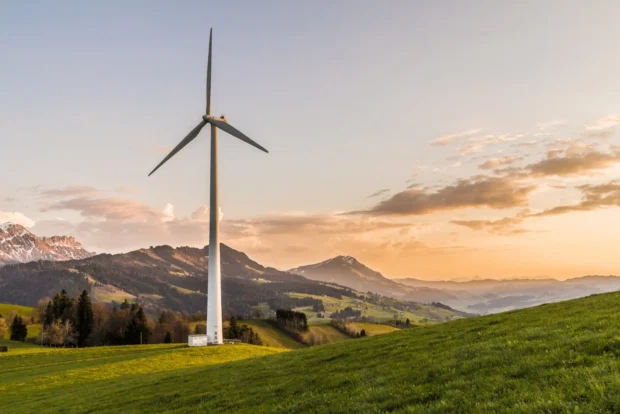Brazil’s new climate investment platform hailed as ‘an example to the world’

Brazil’s federal government has launched a new platform aimed at attracting international investment in climate projects to cut carbon emissions and boost the country’s green economy.
The Brazilian Platform for Investments in Climate and Ecological Transformation (BIP) is led by Brazil’s Ministry of Finance, in collaboration with the ministries of environment and climate change; mines and energy; and development, industry, trade and services. It was developed in partnership with Bloomberg Philanthropies, the Glasgow Financial Alliance for Net Zero, Brazil’s Development Bank and the Green Climate Fund.
The initiative aims to expand private and public investments in decarbonisation.
“This platform integrates financing with project development,” said finance minister Fernando Haddad. “It matches financiers with applicants who have innovative projects in ecological transformation.”
The platform builds on existing initiatives – namely the Climate Fund and Eco Invest Brasil, which the government says have mobilised R$10bn and R$45bn (US$2.04bn and US$9.14bn) in resources, respectively. Haddad said: “This platform is likely to increase these figures, as sometimes there’s an investor without a project, or a project without an investor. We’re bridging this gap, including through external funding.”
The platform will initially focus on three sectors: nature-based solutions and the bioeconomy; industry and mobility; and energy.
Confidence for investors
The government said that projects added to the platform will be certified by Brazil’s Development Bank and aligned with the country’s Climate Plan, which is currently being updated to finalise 2035 targets. They will also be guided by the Ecological Transformation Plan, which coordinates the green transition of Brazil’s economy, aiming to achieve net-zero greenhouse gas emissions by 2050.
“In this case, we are saying which projects make sense within an investment ecosystem that is coherent with the Climate Plan, with the ecological transformation plan, with the forest restoration plan, with all of the country’s plans,” commented Mariana Silva, minister of the environment and climate change. “This will give investors a sense of security about what is being put forward as an investment possibility. There is also leverage on the part of the government and this creates synergy.”
‘An example to the world’
According to the Brazilian government, Indonesia and Egypt are developing similar platforms.
Mark Carney, UN special envoy for climate action and finance and co-chair of The Glasgow Financial Alliance for Net Zero, a group of financial institutions formed during the COP26 climate conference in Glasgow, said: “Brazil is setting an example to the world, showing how action on emissions can boost growth, spread prosperity, and create new, well-paid jobs. The Ecological Transformation Plan and the New Industry Brazil plan create clear priorities for action.
“Now, the BIP will bring together the public and private sectors with national and international institutions to overcome investment barriers and support an economy-wide transition.”
The government said the BIP is an example of innovation through Brazil’s G20 Presidency, which it holds until December this year. The COP30 climate summit will also take place in Brazil in November 2025.
Read more: How Canada is using data to turn good intentions into climate action
‘Crunch time’
The announcement about Brazil’s new finance platform comes as a new United Nations report warns that annual greenhouse gas emissions are at an all-time high and “countries must start curbing emissions immediately”.
The UN’s Emissions Gap Report tracks the gap between where global emissions are heading with current country commitments and where they ought to be to limit warming to well below 2°C and in line with the 1.5°C temperature limits set out in the 2015 Paris Agreement on climate change.
According to the latest report, the 1.5°C limit will be surpassed within a few years unless nations collectively commit to cut 42% of annual greenhouse gas emissions by 2030 and 57% by 2035 in the next round of nationally determined contributions, and back this up with rapid action.
“Climate crunch time is here,” said UN Environment Programme executive director Inger Andersen.
“We need global mobilisation on a scale and pace never seen before, starting right now before the next round of climate pledges.”


















